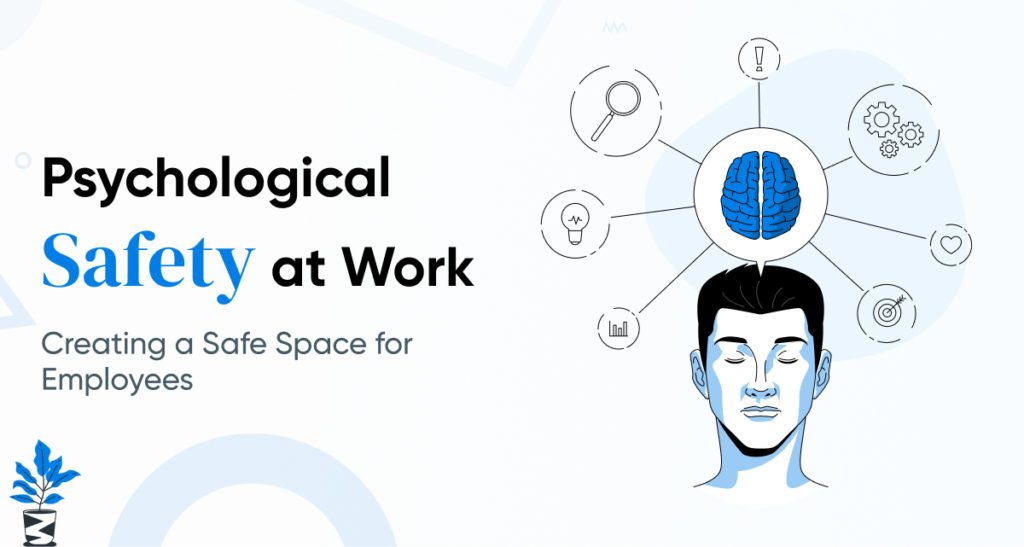Industrial psychology is one of the most powerful tools in creating safer workplaces. It goes beyond hard hats and helmets — it studies how people behave, why they take risks, and how their actions affect safety.
Industrial psychology — the study of how people behave at work — plays a vital role in shaping safer workplaces. This blog explains how this science helps prevent accidents, boost morale, and protect lives. Whether you’re a student, worker, or manager, these insights will help you understand the important link between psychology and safety.

1. What is Industrial Psychology?
Industrial psychology is the scientific study of human behavior in work settings. It applies psychology principles to improve job satisfaction, productivity, and safety.
It covers:
- Motivation and job satisfaction
- Leadership and teamwork
- Job design and ergonomics
- Mental health and stress management
- Communication and conflict resolution
- Safety training and behavior improvement
Think of industrial psychology as the science of people at work — helping companies build better jobs and safer workplaces.
2. Why is Workplace Safety Important?
Workplace safety protects workers’ lives and well-being. According to the International Labour Organization (ILO), over 2.3 million workers die annually worldwide due to work-related accidents or diseases. That’s roughly 6,000 deaths every day.
(Source: ILO, 2023)
Unsafe workplaces cause:
- Injuries and fatalities
- Lost workdays and reduced productivity
- High medical and legal expenses
- Equipment damage
- Decreased employee morale and trust
Most accidents result from unsafe human behavior — rushing, ignoring rules, or distractions. This is why understanding behavior is essential.
3. The Root Cause: Human Behavior
Many workplace accidents are caused by how people behave.
Example: A factory worker skips wearing gloves because they feel uncomfortable or think “just this once” won’t hurt. This unsafe choice can lead to serious injury.
Common reasons for unsafe behavior:
- Lack of awareness or training
- Pressure to meet deadlines
- Overconfidence or risk underestimation
- Poor supervision or unclear rules
- Stress and fatigue
Industrial psychology helps us understand why people act this way — the first step to solving safety problems.
4. How Industrial Psychology Improves Safety: Key Principles
Industrial psychology uses several important principles to create safer workplaces:
4.1 Ergonomics: Designing Jobs for Humans
Ergonomics means designing tools, machines, and tasks to fit workers’ bodies and abilities.
Example: A workstation adjusted to the right height reduces back pain and mistakes.
4.2 Motivation: Encouraging Safe Habits
Workers follow rules better when motivated.
- Praise safe behavior
- Reward safety milestones
- Create friendly safety competitions
4.3 Training and Skill Development
Training must be clear, practical, and engaging.
Tip: Use visuals, hands-on practice, and simple language.
4.4 Leadership and Communication
Supervisors set the tone.
Supportive leaders who:
- Communicate openly
- Listen to workers’ concerns
- Recognize safe practices
- Handle problems fairly
build a strong safety culture.
4.5 Managing Stress and Mental Health
Stress and fatigue increase mistakes. Reducing pressure, allowing breaks, and offering mental health support help workers stay alert and safe.
5. Building a Culture of Safety
A safety culture means everyone shares responsibility — from top bosses to new employees.
Companies can:
- Make safety a core value
- Involve workers in decisions
- Reward safe behavior
- Encourage hazard reporting without fear
- Regularly review safety practices
When safety becomes part of daily life, accidents drop significantly.
6. Behavior-Based Safety (BBS): Changing Habits for Good
BBS focuses on changing unsafe behaviors by:
- Observing workers’ habits
- Identifying unsafe actions (like skipping PPE)
- Providing friendly feedback
- Recognizing improvements
Instead of punishment, BBS rewards safe habits until they become natural.
7. Real-Life Stories: Psychology in Action
Story 1: Construction Safety Boost
A construction company had many slips and falls. Observations showed workers skipped proper boots during short tasks.
They:
- Ran awareness campaigns about “small risks”
- Trained supervisors to check gear
- Involved workers in safety planning
Result: Slip accidents dropped by 45% in six months.
Story 2: Stress Reduction in a Factory
Errors increased on an assembly line due to mental fatigue.
They:
- Changed shift rotations
- Added breaks every 90 minutes
- Offered stress management training
Result: Errors decreased and job satisfaction improved.
8. The Role of Technology and AI in Safety
Modern tech helps industrial psychology by:
- Using wearables to detect fatigue
- Cameras monitoring risky behavior
- Apps for instant hazard reporting
- AI predicting unsafe situations
But technology must be paired with human insight to succeed.
9. Simple Tips for Workers to Stay Safe
- Always follow safety rules, even for quick tasks
- Speak up about unsafe conditions
- Help coworkers remember safety habits
- Take breaks and manage stress
- Participate actively in safety training
Your behavior can save lives — including your own.
10. Frequently Asked Questions (FAQ)
Q1: Why do workers ignore safety rules?
Workers may feel rushed, unaware, pressured by peers, or think risks are low.
Q2: How can I motivate my team to be safer?
Use positive feedback, rewards, and involve them in safety decisions.
Q3: What role do supervisors play?
They model safe behavior, communicate clearly, and support workers’ concerns.
Q4: Can technology replace human judgment in safety?
No, technology aids safety but understanding human behavior remains key.
11. Conclusion: Start with the Mind to Create Safer Workplaces
Workplace safety goes beyond helmets and rules. It begins with understanding human behavior.
Industrial psychology gives us tools to:
- Design better jobs
- Motivate workers
- Reduce stress
- Build safety culture
As industries grow, this human-centered approach is vital to prevent accidents and protect lives.
Call to Action:
Start observing your own habits today. Encourage safety among your team. Together, let’s build safer, healthier workplaces for everyone.
